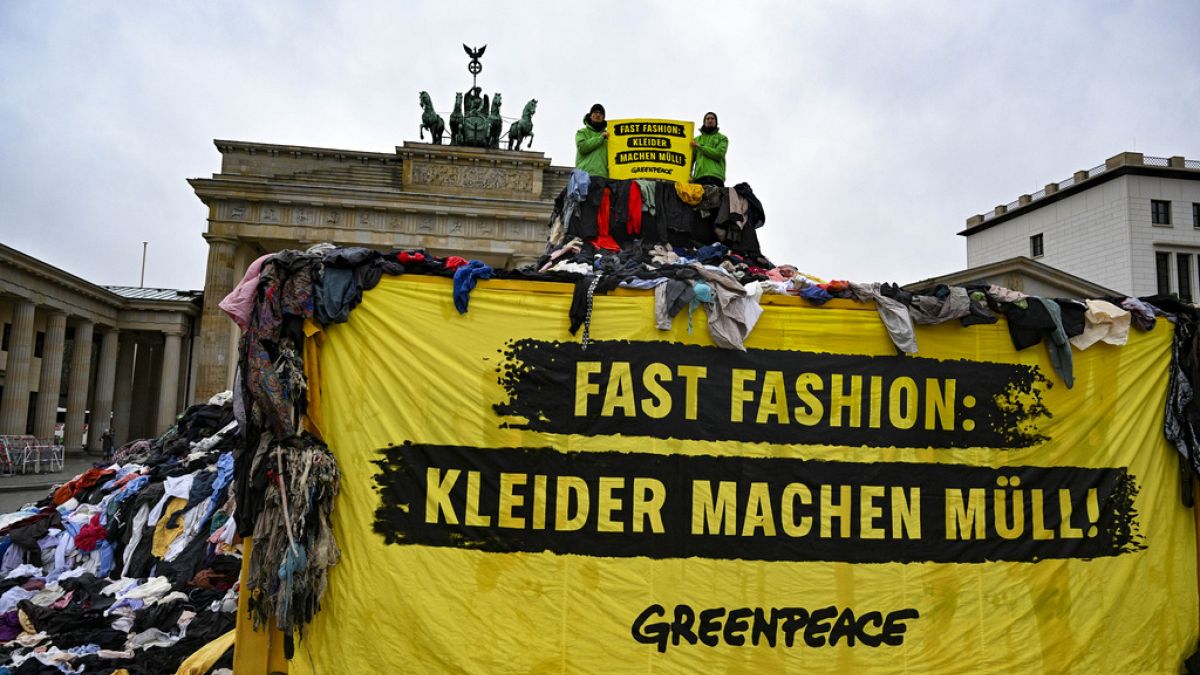The Trends: Fashion industry asks EU for respect and support in green transition

In Brussels, at the European Parliament, they held The EFA Roundtable, on December 4, 2024, under the patronage of Dr. Christian Ehler, Member of the European Parliament, and with the presence of Jessika Roswall, European Commissioner for Environment, Water Resilience and a Competitive Circular Economy.
During the roundtable, they highlighted the importance of establishing articulated regulations that respect fashion’s creative identity while promoting innovation and sustainability.
“Fashion is not only about creating objects, but it is also about creating dreams and embracing the art of constant reinvention. In times of social transformation, these dreams are more essential than ever,” said Christian Ehler, member of the European Parliament.
“The European Union and its institutions must actively support and nurture this spirit of creativity and innovation. To achieve this, however, requires strong collaboration between politics and industry. But the task of achieving the mandatory 55% reduction in climate emissions is not only up to lawmakers: the fashion sector and industry must also make serious, large-scale efforts to achieve the common targets,” he added.
“As the new Commissioner, I want you to know that my door is always open. The transition to sustainable fashion is not only about regulations, but also about collaboration, innovation and a shared vision,” continued Jessika Roswall, EU commissioner for Environment, Water Resilience and a Competitive Circular Economy.
“At the European Parliament, in Brussels, participation in the Fashion Policy Round Table organized by EFA (European Fashion Association), of which Camera Nazionale della Moda Italiana is a founding member and Board member, in-depth discussions took place on hot topics for the fashion industry,” said Carlo Capasa, president of Camera Nazionale della Moda Italiana.
During the discussion, the importance of recognizing an “emotional” durability of products to measure the real durability of the finished product was discussed, as was the need to reward noble and biodegradable fibers and to charge the costs of achieving the ecological transition to those who fill landfills with fast fashion consumer products. In addition, Capasa called for the formulation of specific rules for Italian manufacturing, made largely by SMEs, which drives creative fashion production around the world.
Present at the round table were Christian Ehler, MEP & EPP coordinator for the Committee on Industry, Research and Energy (TRE), Jessika Roswall, EU commissioner for Environment, Water Resilience and Competitive Circular Economy, Letizia Moratti and Giorgio Gori, Members of the European Parliament, and Costanza Maramotti, member of the Board & Sustainability Committee of Max Mara.
“I hope that in Europe we will finally realize the relevance of our commitment and the push that the entire fashion industry is giving to the ’Green Deal’ in that interpretation that can only be respectful of all components of the creative fashion industry,” Capasa continued.
At a crucial time for the European fashion industry, the European Fashion Alliance (EFA), which brings together the European Fashion Chambers, is committed to defending the uniqueness of the European creative fashion industry and its economic, social and cultural power.
Founded in 2022, EFA stands as a collective voice, promoting the transition of European creative fashion to a more sustainable, innovative and inclusive future. The power of the creative fashion industry in the sustainability debate is indisputable.
Designers and creatives have already led the push toward sustainable practices, promoting environmental and social change. The full development of the sector, particularly SMEs, requires a fruitful dialogue leading to an appropriate European legislative framework.
The “Status of European Fashion” report expresses a statement of values, an industry survey and a manifesto of recommendations. The survey was conducted by EFA based on a study conducted with 211 industry representatives and carried out in collaboration with EFA’s 27 members.
The European fashion industry is facing a significant transformation, driven by the need for sustainability, technological innovation and workforce development. The industry is under increasing pressure to address environmental impacts, adopt new technologies and prepare the workforce for future needs.
EFA, Brussels
EFA has drafted ten recommendations that aim to enhance European creativity and power, measure sustainability fairly, and provide accurate and fair information to consumers.
The two panels of the day emphasized the importance of creation, quality and heritage, all of which are key to sustainability. They also highlighted the urgency of moving toward sustainability and the importance of crossing skills and building bridges within the fashion ecosystem in collaboration with public authorities.
The crucial role of research and development policies and digital transformation, empowered by artificial intelligence, particularly from the perspective of the Digital Product Passport, were also addressed during the meeting.
Although there is an intention within the industry to adopt sustainable practices, many brands face significant obstacles, such as lack of knowledge, financial resources and qualified staff. Overcoming these challenges requires clear regulations, financial support and incentives to help companies make the transition to a more ethical, transparent and sustainable business model.
READ ALSO:
Related
Scotland’s biggest landowner is fashion brand billionaire
A European fashion tycoon is the biggest landowner in Scotland—and perhaps even the UK. Danish billionaire Anders Holch Polvsen named the Highlands' richest
EU targets food and fast fashion in new war on…
Polish presidency of the EU Council announced breakthrough in early hours after marathon overnight talks on food waste reduction targets and measures t
Fashion must-haves for your spring semester in Europe
Preparing to study abroad can be incredibly intimidating. With all the emotional turmoil you’ll face in the weeks prior, the last thing you�
Worldview: Ukraine’s Adaptive Fashion for the War Wounded
🇺🇦 Ukrainian Fashion Week presents adaptive clothing for combat injuries. More than 40 fashion brands presented their latest collections at Ukrainian Fash















